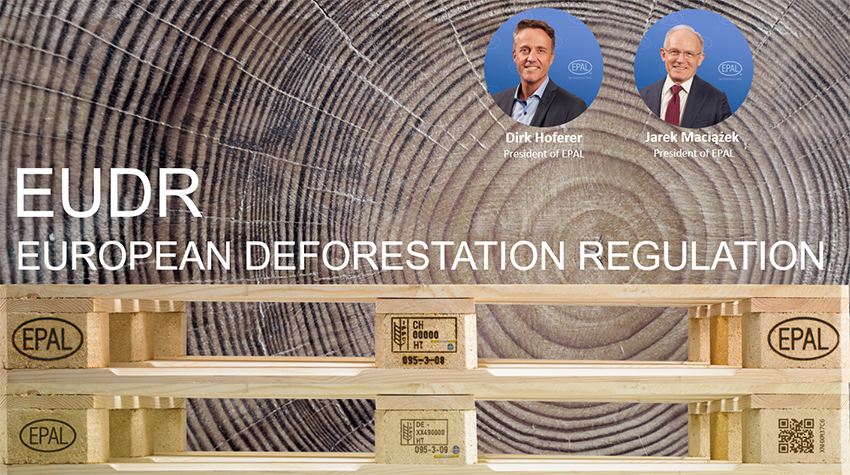EU Commission supports postponing the launch of the EUDR by one year
EU Commission supports postponing the launch of the EUDR by one year
On 02 October 2024, the EU Commission proposed postponing the start of application of the EUDR (European Deforestation Regulation) by one year to 30 December 2025. Such a postponement had recently been called for by EPAL and many other associations and companies.
The European Deforestation Regulation (EUDR) aims to prevent forests from being cleared or damaged for the manufacture of agricultural products and wood products. In order to achieve the objectives of the EUDR, users of timber and other relevant products will in future have to document where the timber or other products have been grown or manufactured in an online due diligence declaration. EPAL supports these goals. The preservation of functioning forests through sustainable forest management is not only important for society and the environment, but is also the basis for the future use of wood for the production of EPAL pallets and other wood products (see website news from 10.09.2024).
However, the online platform is currently not available for testing or use, just as the risk classification of the countries of origin has not yet been published. EPAL and numerous other industry and trade associations have therefore called for the launch of the EUDR to be postponed.
The European Commission has repeatedly rejected such a postponement until the end of September 2024. However, the European Commission has now apparently recognised that the ongoing delays in the provision of the online platform (EU Information System) and the large number of unresolved detailed questions regarding the application of the EUDR would lead to numerous supply chains being massively disrupted if the EUDR were to enter into force on 30 December 2024 as planned.
Jarek Maciążek, President of EPAL:
“The European Commission's decision to postpone the start of the application of the EUDR comes late, but it is correct in every respect. In many discussions with users of EPAL pallets, EPAL has learnt that the majority of companies are not yet prepared for the application of the EUDR. This applies not only to EPAL pallets and other wood products, but also to many agricultural products in particular, which also fall within the scope of the EUDR. EPAL therefore welcomes the European Commission's decision to postpone the start of application of the EUDR by one year.”
However, the European Commission cannot decide on the postponement alone. The European Council and the EU Parliament still have to approve the postponement. In view of the political discussions of recent weeks, there is no doubt that this will happen shortly.
Together with the proposal to postpone the start of the application of the EUDR, the EU Commission has published various documents that are intended to clarify specific questions regarding the application of the EUDR. The documents are available online for download:
Unfortunately, the EU Commission's new documents are also only partially suitable for solving all currently unresolved problems in the application of the EUDR and reducing the additional workload associated with the application of the EUDR, even if there is no specific risk of forest degradation. EPAL and many other associations are therefore calling for the time gained by postponing the start of the application of the EUDR to be used to simplify its application and exclude risk-free supply chains from its application.
However, the EU Commission has already explicitly stated in its recommendation to postpone the application of the EUDR that no changes to the EUDR should be made during the 12-month postponement.
Dirk Hoferer, President of EPAL:
„The fulfilment of the EUDR obligations to document the deforestation-free origin of timber and other relevant products involves a considerable amount of additional work for the companies concerned. The European Commission, together with the EU member states, should therefore re-examine in detail how the application can be simplified.
In addition, supply chains in which there is no risk of deforestation at all should either be excluded from the application of the EUDR or regulated separately. The wood for EPAL pallets, for example, comes predominantly from EU member states that have regulated the use of forests for the production of wood in detail and also enforce compliance with the legal regulations. There is therefore generally no risk of deforestation when using wood from EU member states. However, if this is the case in individual countries, these can be exempted from the facilitations and exemptions. However, bureaucracy must not be imposed on companies for reasons of formal equal treatment, even though there is actually no risk of deforestation.“

